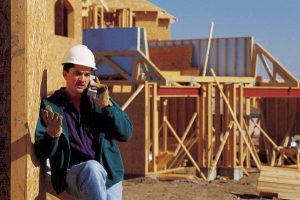Top Questions to Ask Your Landlord
 So you found the perfect new apartment to lease – you have the date that you are to be out of your current apartment AND you have scheduled the movers but…. What if your rental is not ready or there are potential time delays for the entire property? Any potential improvement by a Landlord that will affect a future lease needs to be fully detailed prior to the Tenant signing the new lease. When a Tenant prepares for and moves in to a new Apartment or home, they need to know that the space is fully functional and their lives will not be disrupted by future changes. If the Landlord knows in advance that modifications and improvements are scheduled on the Building or the parking area or even the Work-Out Center or Pool, and those improvements will affect the parking spaces or use of the advertised facilities, complete plans and specifications for those improvements should be fully detailed and attached to the Lease showing the Layout of the plans prior to signing and a time-frame of when the work is to be complete.
So you found the perfect new apartment to lease – you have the date that you are to be out of your current apartment AND you have scheduled the movers but…. What if your rental is not ready or there are potential time delays for the entire property? Any potential improvement by a Landlord that will affect a future lease needs to be fully detailed prior to the Tenant signing the new lease. When a Tenant prepares for and moves in to a new Apartment or home, they need to know that the space is fully functional and their lives will not be disrupted by future changes. If the Landlord knows in advance that modifications and improvements are scheduled on the Building or the parking area or even the Work-Out Center or Pool, and those improvements will affect the parking spaces or use of the advertised facilities, complete plans and specifications for those improvements should be fully detailed and attached to the Lease showing the Layout of the plans prior to signing and a time-frame of when the work is to be complete.
If improvements and/or modifications to the actual lease space are agreed upon prior to the move-in date, demand should be made by the Tenant that the Unit improvements be completed prior to the commencement of the lease term and prior to the Tenant’s obligation to start paying rent. The Tenant should be provided with one or more remedies within the lease if it were to happen that the Landlord failed to complete the improvements on time. The Tenant may be given the right to terminate the lease, select a different rental until the Unit is available or demand deferred rent payments until the construction and/or agreed upon improvements are complete.
The cost of any ‘agreed upon’ improvements and modifications are usually absorbed by the Landlord and/or Owner. That cost is normally a consideration of the Landlord when they set the rental rate. If the Landlord finds delays in the construction and additional costs that were not included in the calculation of the monthly rent payment, that will, of course, mean less profit to the Landlord or Owner. That fact normally pushes the Landlord to have the Unit ready for move-in on or before the agreed upon date.
Throughout the term of the lease, the Landlord is responsible for repairs to the Unit, including those caused by normal wear and tear, unless of course, the problem was caused by the Tenant and/or the Tenant’s guests. If the needed repair causes substantial housing code violations in the rental unit, the Landlord is responsible for correcting the issue as soon as possible. Of course, if the expense was caused by the Tenant, the Landlord will bill the Tenant for that expense. If the problem is reported by the Tenant and the repair is not made within a reasonable time, the Tenant may be entitled to a discount of the rent amount until the repair is completed. In extreme cases, the Landlord may be subject to civil and criminal liability for violating the housing code. There should be a clause included in the original Lease Contract concerning the amount of time that the Landlord has to remedy major repair issues in addition to the Tenant’s responsibility to remedy damages made to the Rental Unit by the Tenant and/or the Tenant’s guest.
